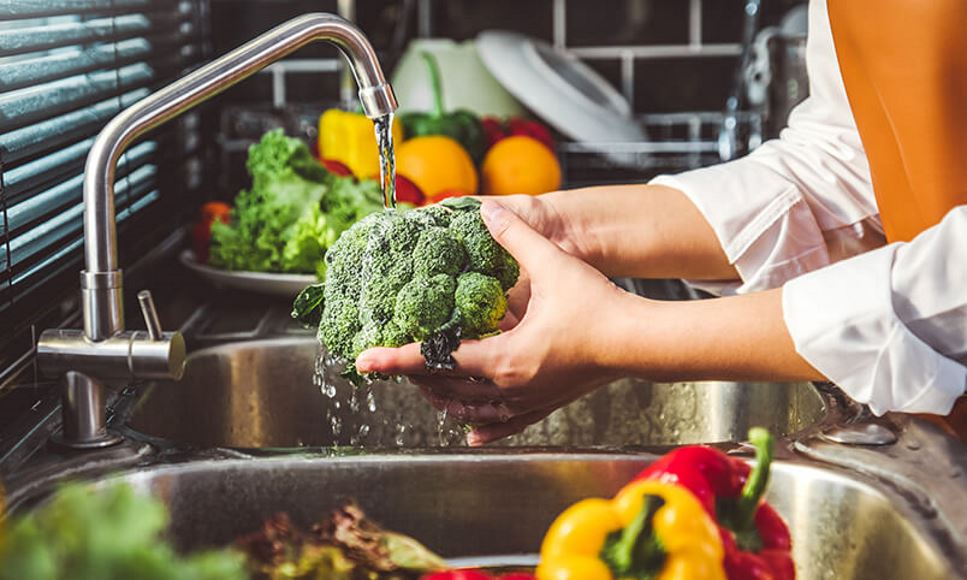-
Food Safety at ²ÝÁñÊÓƵ

Food safety is extremely important in protecting against foodborne illnesses. Food safety consists of different ways to handle, prepare, and store foods. These protocols are used in foodservice operations but should also be used at home.
-
Basic rules for food safety
- Wash hands and cooking utensils regularly
- Cook foods to correct temperatures ()
- Store food in a refrigerator in a timely manner to avoid potential growth of bacteria
- Reheat leftovers to a safe temperature
- Separate raw meats and eggs from ready to eat foods to avoid contamination
Food safety tips
-
Wash hands! (especially after handling raw meats and eggs)
-
Only wash produce items and not meat, poultry, or eggs
-
Use different cutting boards for raw meats and ready to eat foods (Tip: Turn over a cutting board to use the other side)
- Use a thermometer
Storing leftovers safely
- It is important to store leftovers in the fridge within 2 hours of cooking if not kept at a safe temperature of 140°degrees.
- Store in a tight sealed container.
- Depending on the food, most leftovers can last 2-4 days in the refrigerator and 3 to 4 months in the freezer.
Reheating/ Thawing foods properly
- Reheating/ thawing leftovers:
- Using a microwave, oven, or stove to reheat leftovers is safe as long as the food reaches a temperature of 165°F
- Thawing frozen food items:
- Place frozen food item in the refrigerator overnight for easiest and safest thawing method.
- Place food item in a tightly sealed bag and place in cold water. It is important to keep an eye on this food item since it takes longer to thaw.
*Foods thawed using a microwave or the refrigerator may be refrozen immediately after thawing and foods thawed with cold water should be cooked before freezing again*
Those at risk for foodborne illness
While everyone is susceptible to getting a foodborne illness, certain groups of people are more susceptible. These groups of people include…
-
Pregnant women
-
Older age adults- over 65 years old
-
Children- under 5 years old
-
Individuals with weakened immune systems
